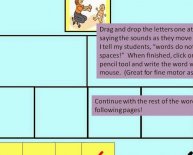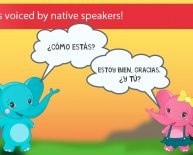
Learn more Spanish
 You may have heard the traditional “wisdom” that children learn second languages more easily and more quickly than adults, and that it’s therefore best to learn a new language before puberty. This idea, the Critical Period Hypothesis, started becoming popular in the early 20th century, and posits that fundamental differences in brain development make it easier to attain native fluency as a child. Its twin, the Frozen Brain Hypothesis, suggests that it’s nearly impossible to attain this same fluency as an adult. If you buy into the Critical Period and Frozen Brain hypotheses, and you’re an adult learner, you may feel as though the odds are already stacked against you. Fortunately, additional research in the fields of linguistics and learning theory paints a picture of a more complex model for language learning.
You may have heard the traditional “wisdom” that children learn second languages more easily and more quickly than adults, and that it’s therefore best to learn a new language before puberty. This idea, the Critical Period Hypothesis, started becoming popular in the early 20th century, and posits that fundamental differences in brain development make it easier to attain native fluency as a child. Its twin, the Frozen Brain Hypothesis, suggests that it’s nearly impossible to attain this same fluency as an adult. If you buy into the Critical Period and Frozen Brain hypotheses, and you’re an adult learner, you may feel as though the odds are already stacked against you. Fortunately, additional research in the fields of linguistics and learning theory paints a picture of a more complex model for language learning.
Various studies have shown that the Critical Period Hypothesis provides a very narrow view of language learning. While there’s merit to the idea learning Spanish might become more difficult as you age, evidence suggests that this change takes shape as a gradual decline rather than as a sharp drop-off. Since many new skills might become gradually more difficult to learn, this shouldn’t shake your confidence or resolve to learn, especially since environmental differences such as education and socioeconomic status are just as likely to impact your learning curve. Moreover, young children acquire language in environments and through methods that differ fundamentally from those of adult learners. When controlling for these environmental differences, adults are able to adapt to the grammatical and structural limitations of a new language just as quickly, if not more quickly, than children. Finally, rigorous case studies have identified that some adults do achieve native-like proficiency in a second language, even when taking accents into account. In short, a nuanced approach toward language acquisition recognizes age as one of many factors that may potentially influence a learner’s success, rather than exalting early learning as the end-all, be-all of foreign language studies.
For adult learners, this means you can keep your chin up! There’s no reason you can’t become proficient or conversational as an adult. Your learning methods as an adult are different than they were when you were a child: children learning languages are in a constant state of immersion and must simultaneously learn a new language and create an understanding of what language is. That may give you more control over your own personal learning process, since understanding what language is and how (on a high level) it functions, gives you a better framework to understand Spanish. Fluencia was designed for adult learners, taking advantage of the English you already know and leveraging your existing knowledge to help provide feedback as to not just how but why you make a mistake on a question. This feedback is especially important for adults, as it helps you retain information better and allows you to apply the structural patterns you learn.














